(Here’s the fourth installment of DGR’s 5-part year-end effort to sink our site beneath an avalanche of words and a deluge of music. The concluding Top 10 will appear tomorrow.)
A confession: For a long time the only words in this whole writeup prior to me breaking the whole thing into five parts and actually listing the bands was just a whole bunch of swear words. Even though I’ve been doing this for nine years now I still will occasionally try things I learned in writing classes over the years or even some things I’ve read about since then. Stream-of-consciousness writing is one of those, but the only thing I’ve learned from doing that in the context of talking about albums of the year is that I’ve assembled a pretty neat collection of permutations of the word ‘fuck’ that I’ve gathered from popular culture over the years.
It was at this point that I began going back through our review archives so that I could even remember what came out this year. Metal-Archives is also a tremendous help in that regard, since I often can’t remember what I talked about in January unless I’ve listened to it since then. It’s also one of my favorite things to do because I get to have a laugh at how far back I have to go in the segment tagged ‘Reviews’ on the site. I know that we’ve missed more than a few albums, but as it stands now, our first review of something from 2018 is about forty pages back. And there can be anywhere between five to fifteen albums per page of results — depending on how we grouped them for each article.
I know that’s just reflective of the ‘relentless march of hashtag content’ that the internet has become, but it still makes me smile. If I ever need a reminder that heavy metal is — somehow, despite all the odds and all the editorials about rock music dying — a lively as all hell genre, that’s enough for me. I guess there will always be room for cathartic release via loud instruments, or the various experimentations outside of the tradional music sphere to which this genre loans itself.
This segment of the list contains a lot of representation of the former, the sheer expulsion of various angers and other strong emotions through the force of ‘loud’. I wrap up most of the tech-death party here as well, and am genuinely surprised by the number of duos that make it into this segment, plus I also continue extolling my love of the ‘dumb’ side of heavy metal. So let’s continue on, and hopefully by tomorrow I’ll have finished crushing the world under the weight of the words.
20 – Beyond Creation – Algorythm
I think of Algorythm as a tree sprouted from the seed of one song from the group’s previous album Earthborn Evolution. I mentioned it in the review but I’ll also propose it here: I think that Beyond Creation releasing a music video for that album’s title track should’ve served as a beacon for where the band were going to take their sound. The group’s newest disc feels like it’s walking further down that path, expanding all that rapid tapping, melodic wanderings, and philosophical exploration in one song into an album of its own.
The album makes Beyond Creation feel like the wisened old sages of tech-death. They play as fast as anyone else, and across Algorythm they throw a whole lot of ideas out there to differentiate themselves from everyone else (including piano breaks and symphonic augmentations). And then there’s the fact that the band seem to have written their songs so that their instruments always seem like they’re picking up the baton in a relay race from one another, which has some sort of relativistic effect that makes this album seem meditative and…slow.
It’s probably odd to recommend a disc based off how much you enjoyed one song from a previous album, yet there’s so much shared between them that I can’t help but see a through-line. Beyond Creation do throw in multiple instrumental wanderings throughout Algorythm to help break things up even further — but it still ends up sounding like a gigantic slab of the band’s signature sound.
The ending run of “The Inversion” to one of the aforementioned instrumentals, “Binomial Structures”, and then into the fantastic closer “The Afterlife” proves to be one of the album’s highlights as well, especially when it comes to “The Afterlife”, where it sounds like all of those different elements spread throughout the album finally congeal into one piece. The rest of the album is a little more even-handed, though there are still some strong contenders as well — the title song, “Ethereal Kingdom” before it, and “In Adversity” (for being one of the faster songs on the disc).
I’ve seen that some people are disappointed in this release, but I don’t buy into that particular branch of silliness, I’ve enjoyed my time with Algorythm since it is a dense block of Beyond Creation expanding upon a now signature sound. I don’t know if I could handle another disc from them that is as filled-out as this one, but Algorythm is an excellent proof that maybe I could, in fact, go for one more round.
19 – Necrophobic – Mark Of The Necrogram
2018 may be the year in which I fully embraced my love of cheeseball bullshit slowly working its way into my more serious and grim *crosses arms* heavy metal.
Necrophobic are a long-running hybrid of black and death metal, and have a particularly good discography behind them, but I’d be lying to you if I didn’t admit that Mark Of The Necrogram is absolutely part of the group of albums on this year’s list that is not only wholly bought into its own bullshit but is also insanely good at it. It includes multiple songs that are not only heavy as all hell on the metal front, but also contains multiple earworms — especially in its front half — capable of boring their way into your skull.
I’m overjoyed that I get to have another band added to the list of ‘awkward names but killer guitar writing’ whenever I’m recommending groups to people. “Yes, I know Rotting Christ is an abrasive name but those last few discs are some of the catchiest…” and so on. Welcome to the club, Necrophobic. The opening run from the album’s title song — which is something of a showstopper from moment one (I imagine ‘Tsar Bomba” will win out in an infectious song contest but that opening gallop is undeniable) – all the way up to “Sacrosanct” is one of the strongest five-song runs I’ve heard in some time. And they’re on an album where I don’t think there’s too many dull moments to begin with.
Necrophobic sound ferocious and lively with their current lineup, which saw some big changes between releases, yet they still sound like old pros just jamming out track-after-track. Vocalist Anders Strokirk‘s snarling rasp fits perfectly alongside the band’s constant shifting between evil atmospheres and headbanging rhythm sections. Necrophobic are plenty happy to break out a bunch of classically black metal sounding riffs, but fuse them with their own melodic lines to make something that can easily appeal across genre lines. The band’s branch of the Satan-worship tree is one that reveals itself to be a lot of fun over the course of Mark Of The Necrogram, no matter how grim or violent the subject matter of each song shows itself to be.
It’s hard not to instinctively rock out to a lot of what is present here, with Necrophobic’s handful of slow-stomping songs or their more traditional quick and black metal blast-fueled segments. Mark Of The Necrogram is certainly one of the catchier records I’ve enjoyed this year.
18 – Born To Murder The World – The Infinite Mirror Of Millenial Narcissism
Welcome to the ‘hey, DGR likes the fast stuff block”
Fifteen minutes: This album is fifteen minutes long. Earlier on in this list I mused about what the definition of Mire’s Shed release might be and eventually compromised on the “album/EP” signifier simply because that thing was six songs. But that one is double the length of this. To repeat, Born To Murder The World‘s debut album The Infinite Mirror Of Millennial Narcissism is fifteen minutes — and twelve tracks — long. If I have ever given the impression that I have any idea what the fuck I’m doing, allow me to apologize for that now.
Born To Murder The World‘s debut was a long-gestating project, a combination of Anaal Nathrakh’s Mick Kenney, Napalm Death‘s (and about four dozen other groups because he never stops playing) Shane Embury, and Fukpig’s Duncan Wilkins (otherwise known as “Drunk“). Together they are the sort of band who sound exactly like what their component parts might suggest: an extremely noisy fusion of grind (Napalm Death‘s rapid start/stop nature being a common theme here) and a variety of other extreme genres, all played at intensely high speeds, with Mick Kenney‘s penchant for turning the volume up to 110% and a man effectively screaming his lungs raw over the top of it.
While it shares a ton of similarities with its component members’ other projects, Born To Murder The World make good use of their time by releasing an album that is all intensity, all the time, one that starts and wraps itself up so rapidly it’s hard to keep track of what song you might be on. It may be one of the few albums on here that is an overall “mood” piece, which in this case is the sort of shrieking rage one might feel before your dumb ass punches a wall to prove how mad you are… and then has to go get a crash course in how to patch that hollow drywall.
The songs on Infinite Mirror range anywhere between eighteen seconds (in the most extreme case) and two-and-a-half minutes, but nothing gets close to feeling lengthy. The non-stop nature of the assault can make some of the songs feel like they’re running surprisingly long, but then – as was often the case on this end – you’ll blast through the next three in such a blur that it is blinding. There are absolutely specific songs that tend to stick out from the pack – “Genesis Misconception” being an early album highlight – but in reality, Infinite Mirror needs to be run front-to-back, and not just because it wraps up by the time most albums would be reaching song four.
If you’re a big fan of either of this group’s three pillars, musician-wise, then Born To Murder The World is an easy recommendation.
17 – Anaal Nathrakh – A New Kind Of Horror
I think Anaal Nathrakh‘s pyrotechnic take on metal is always going to rank particularly high with me. Their varied combinations of different genres, all pushed about as far, fast, and loud as they can go to produce some of the ugliest and most abrasive music that they can, just seems to scratch a certain itch with me, even as the band have had the chugging -core part of their collective sound slowly getting louder and louder. Now, five albums out from when they firmly established a sound on Constellation Of The Black Widow, Anaal Nathrakh‘s latest offering, A New Kind Of Horror, takes on the ghoulish conflict that was World War I.
Combining Dave Hunt‘s talent as a monstrous vocalist and his literature-citing lyrical abilities with the specter of that war, and painting with a fairly intense brush drawing comparisons to the modern age, Anaal Nathrakh perform an interesting sidestep from the increasing abrasiveness of their albums. A New Kind Of Horror doesn’t feel like an obvious forward progression or a leap in any particular direction, whereas previous albums up to this point have all felt like different iterations wherein one element of their sound found itself being the most expressed and outsized among the others. A New Kind Of Horror instead deploys different combinations of stuff they’ve done to create a consistently heavy experience, but one that for sure has the band treading upon ground they’ve already walked before. Of course, if there were any band purpose-built to cite the hellscape that was that particular war, Anaal Nathrakh are more than suited for it.
There’s some big and beefy -core bruisers on this disc, two of which have assistance from rifle fire (“The Horrid Strife” and “Forward!”), both of which appeal to the caveman side of the brain that just wants to hear ‘large beat crush things’. If you’re looking for the more traditional and flame-broiled speed songs, the Nathrakh crew fill A New Kind Of Horror with those as well, while also trying to twist things up a bit, so on occasion it’s like Anaal Nathrakh if the crew went a little batshit. It’s the only way I can explain the greater usage of the King Diamond-esque high screams that started to become prominent on the group’s last album, The Whole Of The Law, or the vocals in “Mother of Satan”, which constantly seem to reverse and fall upon themselves.
One interesting thing, though, is that in bucking something of a Nathrakh trend over the last few, A New Kind Of Horror actually has a great closing song in the light symphonic and choir-assisted “Are We Fit for Glory Yet? (The War to End Nothing)”. That song in particular is why A New Kind Of Horror ranks so highly here; “Are We Fit For Glory Yet” combines the band’s pushing and bending of their somewhat strictly confined boundaries on the disc and it was enough to keep things interesting — even if there’s a sense that the band themselves don’t quite know what level of extremity they’re going to push things to next.
16 – Human Serpent – For I, The Misanthropist
At some point I’m going to go through the black metal equivalent of the Sonic-fandom cycle that most people do with bands and discover that someone here was involved with some awful shit. Until then, let me just say that Greece’s Human Serpent and the blisteringly nihilistic collection of songs that form their newest album, For I, The Misanthropist, was an ever-present listen this year since its January release. The two musicians behind Human Serpent, the mysteriously named I and X, have a knack for writing not only some powerfully strong black metal but also — like Necrophobic earlier in this grouping — but also some of the most infectious melodic lines to ride over the top of their musical conflagration.
For I, The Misanthropist doesn’t stray too far from Human Serpent‘s earlier recordings but it is the most refined manifestation of their formula so far. They push a tiny bit further than usual, but overall the album plays out as another nine songs from two dudes with a severely deep-seated, pessimistic view of society as a whole — much like the title of the eighth song, “Deep Seated Pessimism”. It’s telling when your opening song is entitled “Seven Billion Slaves”, the exact sort of mood you’re trying to set.
Human Serpent rumble through For I, The Misanthropist‘s thirty-six minutes and rarely change out of the tempo set by “Seven Billion Slaves”. They find a consistent a high clip at which to move and stick with that for almost the whole of the run-time, each song a different variation on a quick buzzing guitar riff and vocalist X howling over the whole affair. That sort of consistency is a double-edged sword; it can at times work in your favor because you have such an established “good point” from which to launch yourself, or it can just feel like a big old block of ‘same’. For most of Human Serpent‘s run here — and their works in general — they’re able to keep that second feeling from creeping into view by inching things forward just enough that their solid core of black metal doesn’t ever feel dull.
Its an album that always feels like flames licking at your heels as you’re trying to flee from it, and even though it arrived early in the year, was one I kept coming back to — especially as it paired so well with so many of the other black metal releases this year.
15 – Kunstzone – Solarborn
Now that I’m looking at it, I have a surprising number of duos on this year-end list.
The combination of Psychotic Pulse’s drummer and Tyrant Of Death‘s mainman (and the Khaozone project wizard) has once again produced an album of killer industrial death metal that sees the battle between two disparate influences — Anaal Nathrakh and Fear Factory — getting even more and more violent, with the Nathrakh side pulling firmly ahead on the group’s newest album Solarborn, in what is now about an 80/20 split.
If by this point in the list the combination of Born To Murder The World, Human Serpent, and Anaal Nathrakh‘s various high-speed assaults haven’t made you happy then allow me to give one more over to you with Solarborn. Barring its intro and outro, most of Solarborn keeps to an insanely fast tempo, filled with booming industrial noise and propelled forward almost entirely by a wall of guitar and a metric fuckton of blastbeats. Basically, other than “First Snuff Generation” and its grinding, pulsating industrial backbeat, most of Solarborn is as described beforehand — intense and relentless.
Once the music kicks into high gear the pairing of “The Harrowing Dawn” and “What The Mouth Conceals” basically lays out the blueprint for the album’s faster songs, and the vocal performance by Andy Benz turns increasingly into a hellwraith over the course of the album. He breaks out a Burton Bell singing voice on occasion — which combined with a sharper groove is where the Fear Factory comparisons tend to come into play — but for the most part the dude is just screaming at the top of his lungs in what seems like a losing battle with an increasingly violent electronics layer. Author & Punisher‘s vocal work can often sound like a man being drowned alive by various machinery, and Kunstzone‘s battle sounds like a vocalist fighting back with a cattle-prod.
Of course, despite the constant and raging battle taking place throughout much of Solarborn, one song really stuck with me this year, and that was the thundering groove of “Enpoint Zero” — whose shouted chorus lent itself to multiple listens on its own, separate from the rest of the album. For all the violent firestorms this band whips up over the course of the disc, having one just ignorant and stupidly heavy song works wonders for it.
Kunstzone are one of those projects whose releases seem to be getting better and better, and Solarborn is a great addition to their upward trajectory. Don’t let this one fly under the radar for you. If you have the ability to give it a spin, do so.
14 – Bloodbath – The Arrow Of Satan Is Drawn
Boy, do I love how campy The Arrow Of Satan Is Drawn gets.
In the world of classic death metal revivalists, Bloodbath are an institution. The Arrow Of Satan Is Drawn is their second album with Paradise Lost’s Nick Holmes at the vocal front, and the band are joined by new guitarist Joakim Karlsson as well. Fully embracing the caricature they began to play on their album Grand Morbid Funeral, Bloodbath rumbled forth with another ten songs of chainsaw guitar tone that saw them throwing back not only to their beloved Swede-death scene but also incorporating more from the English side as well, including various guest appearances pretty much all concentrated in one gloriously stupid song, “Bloodicide”.
If you’ve read my review you know that I love this album but am absolutely smitten with the sheer gall it took to name a song “Bloodicide”. The fact that it turns out to be one of the better songs on the disc only makes the feeling that much sweeter. In fact, that sort of gall seems to have affected The Arrow Of Satan Is Drawn as a whole because the band seem to have embraced their ‘death metal as horror movie’ aesthetic with a joy usually reserved for fans meeting their idols.
Bloodbath find a lot of vitality in mining that specific vein and it results in songs like “Chainsaw Lullaby”, which closes out the album and is probably the most blatant about it , “Warhead Ritual”, “Deader” (which is another fave based on song name alone), and the damned near singalong-worthy heaviness of “Levitator”. “Wayward Samaritan” is also an easy recommendation as its headbanging stomp grows on you like a fungus. I’d also like to highlight the album’s bonus song “Wide Eyed Abandon”, which if you can find somewhere is absolutely worth a listen on its own, especially once it shifts from the glacial moving opening few minutes into a full-blown apocalyptic black metal song. It’s almost criminal that one didn’t make it on to the main album.
While Bloodbath’s throwback worship isn’t the most original thing out there, The Arrow Of Satan Is Drawn still highlights them as one of the best ‘classic death metal’ themed acts out there. It’s not as grim as Grand Morbid Funeral proved to be, but it certainly is a little groove-heavier and a lot more fun. Even though it was another later-in-the-year release, it climbed up this list especially fast.
13 – Harakiri For The Sky – Arson
The greatest crime that Harakiri For The Sky‘s latest album, Arson, commits is not being III: Trauma again. It’s a weird complaint, but that album was my number one disc the year it came out, so Arson had an incredibly high bar to clear, and honestly, it doesn’t quite do so. The turnaround time on Arson was also remarkably quick, coming out only a year and a half later.
Arson is an interesting beast, though, because it reflects what a lot of bands do when they have released two immediate predecessors that sound different from one another in that it tries to split the difference and find a middle ground between them. Thus, half of the album sounds like songs that would’ve fit, in both its production and songwriting, on the group’s 2014 album Aokigahara, and the others sound like they would fit fantastically into III: Trauma‘s lineup without even batting an eye. That leaves Arson in a weird spot, in that it never really strikes out with an identity of its own, but is a collection of good-to-great Harakiri For The Sky songs.
Where you fall on Arson as a whole may depend on which disc you prefer more, but if there were a competition for having something for everyone on their discography, Arson would win. It also means you wind up with weird situations. For example, one of the best songs on the disc may actually be the bonus cover of Graveyard Lovers‘ “Manifesto”; at three-and-change minutes it’s a refreshing change of pace on an album that, much like the rest of Harakiri For The Sky‘s discography, absolutely relishes its misery. The combined vocal styles on that cover make “Manifesto” an interesting experiment that plays out well. While it probably isn’t reflective of what the band are doing as a whole, having basically struck gold early on with their current incarnation, it does make for a fantastic diversion.
Amongst Arson’s own tracklisting, I fell in with the ones that favored the III: Trauma songwriting style, so I absolutely adored the melodic stylings of “You Are The Scars” and “Heroin Waltz”, especially in the closing moments of the former where the piano really takes prominence on the melody. If, like me however, you are bought in on the wailing depression that has become Harakiri For The Sky‘s calling card, then the ten-plus-minute journeys that the group considers their normal state of affairs on Arson will be welcome anyway.
The duo still show themselves to be excellent songwriters despite the album’s somewhat shaky thematic nature. Though their last album was this writer’s album of the year and thus set a high bar to clear, it’s still difficult to deny that Harakiri For The Sky have a grip on writing the most gorgeous and lush music about being down in the dumps that few others have and so far, have created an undeniably great discography out of it.
12 – Dagon – Back To The Sea
I am overjoyed that Michigan’s Dagon were able to put together another album, seven years after their EP Vindication came out. The result of a successful crowdfunding campaign — which we posted about jokingly since we admired the foam shark fins, though I never contributed to it but wound up buying the album on Google Play of all places — Back To The Sea sounds like the result of seven years of work.
Dagon are criminally underrated in my opinion, a nautically themed melodeath band who, even if you just went with the last two releases, have a killer discography filled with ship battles, oceanic attacks, and various creature fights, all of which are helmed by a tag-team combo of a bassist/vocalist in Randall Ladiski and a drummer/high-shrieking battlecat vocalist in Jordan “Truck” Batterbee.
Back To The Sea opens with what is probably the most “welcome back to the fold” song I have ever heard (the title song) and from there powers through thirteen different songs for an hour-plus of catchy-as-hell melodeath. They even made sequels to previous songs. It’s an album that feels like Dagon decided recorded music wasn’t going to exist any more after this, so they were going to throw everything they had into this one.
“Ocean Metal II” is about as fun as the first one from Terraphobic was — the two side-by-side is quite the experience — and “Blood For Gold (The Triton’s Daughter Part II)” picks up where the original one on Vindication left off, leading to a bizarrely proggy closing segment to the album. Closing song “Erased By Fathoms” is seven-minutes long, for instance, and has the band making a wandering journey out of it. But if you’re in here for the faster tracks, then pretty much the whole of Back To The Sea has you covered otherwise.
“Thralldom To The Crossbones” feels like a spiritual successor to “Full Speed Ahead” from Terraphobic, and there are huge blocks in which every two-step and gallop imaginable finds its way into Back To The Sea. If you’re the type to worship guitar leads and solos, then Back To The Sea has them in spades, quickly becoming one of the defining parts of the disc — outside of the cannon fire in one of the songs — and Dagon make them so that each song winds up with its own signature hook.
After the multitude of ship battles, shark attacks, oceanic apocalypses, and mythological fights, Back To The Sea can prove to be exhausting, but it’s also such an excellent hit to the system if you enjoy the melodeath scene that it comes easily recommended.
11 – At The Gates – To Drink From The Night Itself
On one hand, it feels weird for me — a self-avowed At The Gates fanboy and reviewer of this disc for our site — not to have To Drink From The Night Itself crack his top ten, yet on the other hand it is a testament to just how good music was this year that even At The Gates doing some of their most At The Gates material to date couldn’t quite make the cut. That’s not a knock against this album — hell, if you love you some At The Gates and enjoy the Gothenburg two-step guitar riff, then To Drink From The Night Itself is your jam and you can stop here.
The album’s opening song (also its title track) has At The Gates veering the closest they have come to Slaughter Of The Soul since their comeback, and after that the band craft ten more firmly At The Gates-style songs. They play with the formula a few times, which results in stuff like the d-beat-driven “The Chasm”, which is one of the songs you can tell the band are immensely proud of, as the bonus edition of the album includes not only a demo version of the song but also one with a guest appearance from Per Boder of God Macabre fame.
I actually thought for a long time that I would wind up with the faster songs stuck in my head, so tracks like “To Drink From The Night Itself” and “In Death They Shall Burn” were ones that shot to the front of the line for me, but by the end of the year I found that one of the songs that really cored its way into my skull was “Palace Of Lepers”, particularly the guitar line prior to the chorus before the end of the song. I find myself humming that thing constantly.
There are moments across To Drink From The Night Itself where it seems like At The Gates are treading over themselves a bit, such as “A Labyrinth of Tombs”, which feels like an At The Gates madlib turned song title. It’d probably be more egregious if Tomas Lindberg‘s love for citing the words “To Drink From The Night Itself” in his lyrics weren’t already established fact. Despite the heavy-handed analysis, I still found myself continually going back to it. I know part of it is probably due to blind fandom, though I’m not sure how much, and the other part is that I think few bands have ever quite grasped the style of death metal that At The Gates write.
They helped establish the melodeath scene, yet their music has been a combination of evil thrash riffs, high-speed punk riffs, and the blast-heavy world of death metal. You can see the throughline from their music into so many other bands, but the nice thing is I don’t think At The Gates have ever aimed to try and top that, instead just consistently putting out great material that sounds so distinctly like them that no one ever comes close. I sometimes wonder if in the future we’ll be having discussions in regard to the old-school-channeling production of To Drink From The Night Itself, but right now I can say that I’ve enjoyed the fuck out of this disc since it hit.
On The Algorithm – Compiler Optimization Techniques
It’s actually been a little while since I was able to talk about the electronic-djent madness of The Algorithm, and yet the late-in-the-year release of its newest project Compiler Optimization Techniques has provided an excellent opportunity because, as it turns out, I still deeply enjoy this hybrid’s madness.
While it is certainly one of the more metal things that I’ve written about at the end of these list segments, the ever-present electronica influence is one that still remains most prominent in The Algorithm‘s work. Part of it means that each disc is somewhat of a tour through different electronic and industrial genres, and the other part has project mainman Rémi Gallego layering a ton of guitar and drum-work on top of it.
While it’s always been a one man band, it’s been hard not to imagine The Algorithm as an improvisational fight between a DJ and a band, often times seeing just how difficult they can make the song for the other to hold on to. Compiler Optimization Techniques is the fullest realization of that feeling to date: The album only lists five songs yet the shortest track here is six-and-a-half minutes long; album opener “Cluster” clears eleven with ease. That leaves plenty of room for multi-instrumental freakouts that make this instrumental project not only an immense amount of fun to listen to, but also an opportunity to hear how each song develops its insect-like structure and then darts around.
That certainly makes for excellent music to write to, until the inevitable point within each song where the music gets super-intense, but you usually get around that by headbanging along so you can feel like you’ve accomplished something while being utterly distracted. Hearing The Algorithm go for prog-metal song-lengths has proved to be an experience, but it’s also one of the most interesting releases he’s put out by far; while I enjoy the whole of this project’s collective works I was genuinely shocked by just how dynamic Compiler Optimization Techniques proved to be, and its amorphous genre-blob-effect has certainly made it one of my favorite metal-or-not releases this year.

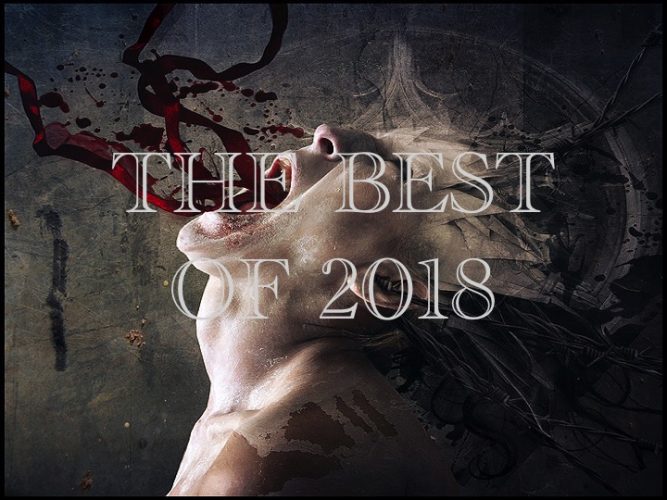
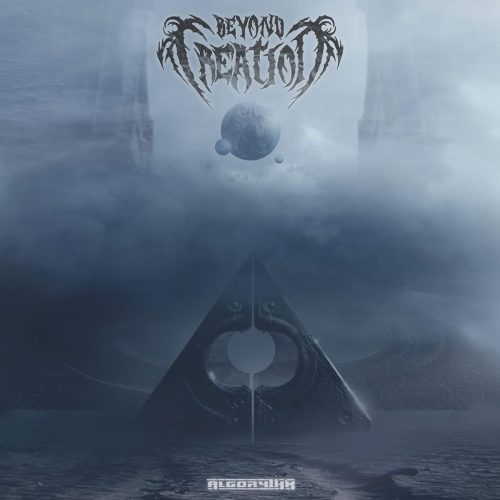
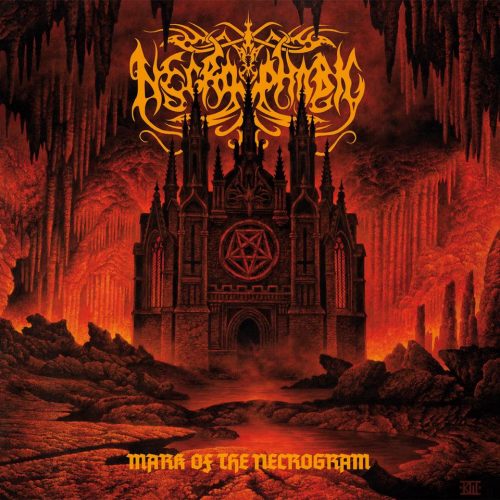
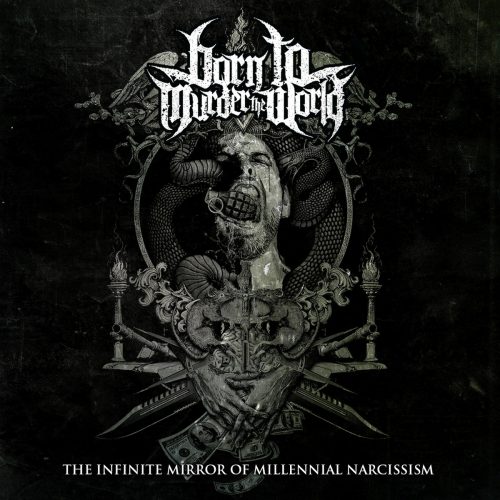
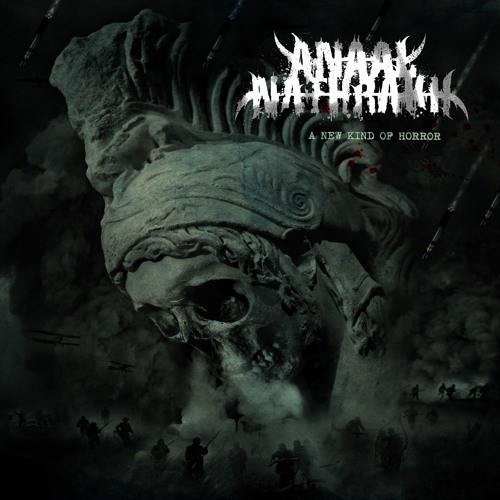
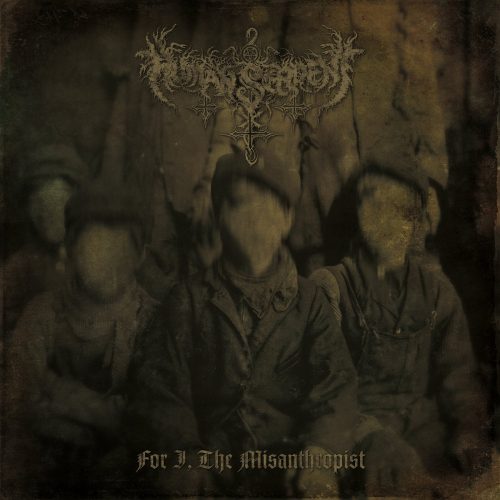
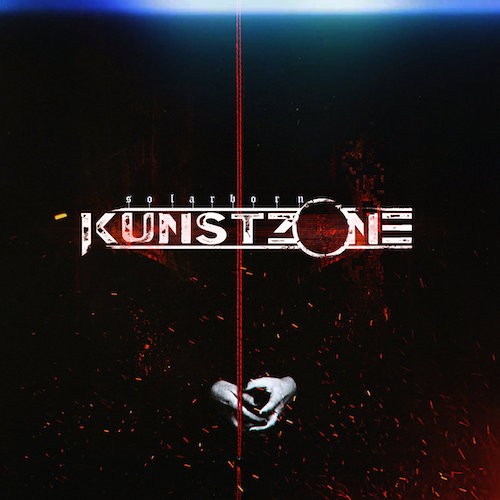
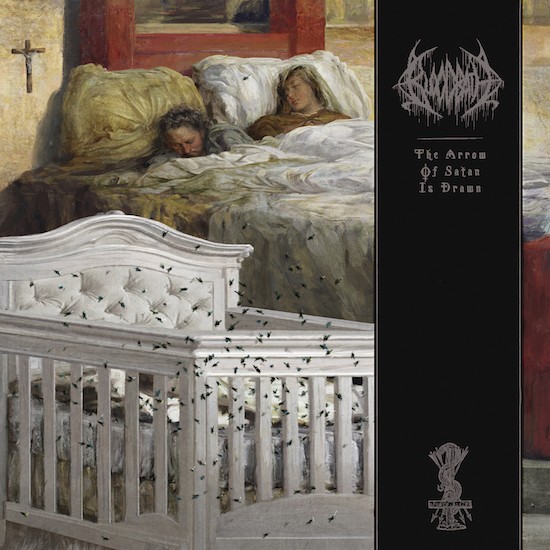
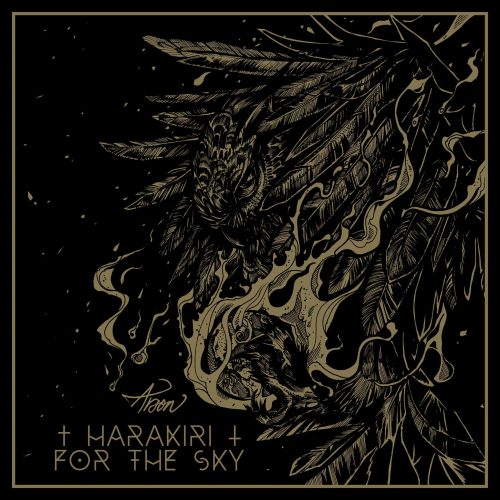
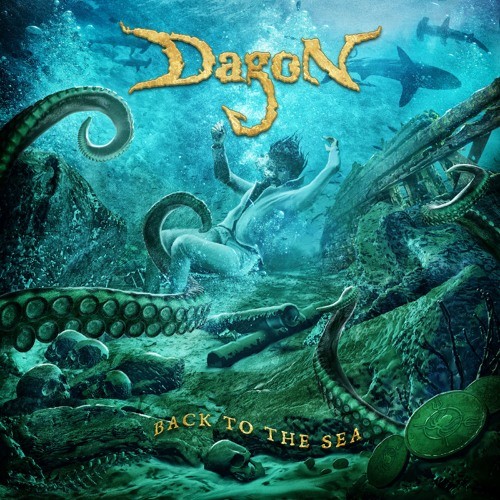
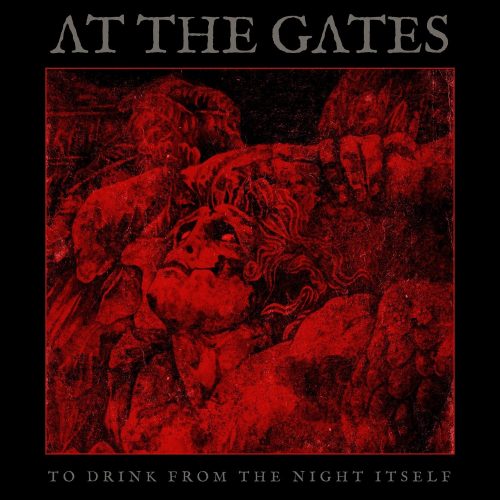
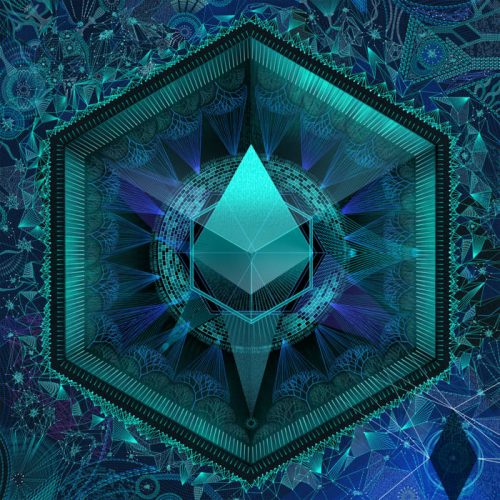
Damn… I think this is the column where I most disagree with your rating/analysis of various entries.
Still, I’ll defend to the death your right to be wrong, loudly, in public.
It’s this kind of impassioned and unwavering mutual support within the ranks that have made us the grand and globally revered edifice of truth and wisdom that we are.
It’s only for DGR though. Not for you.
You’re fired.
No, YOU’RE fired.
As a mere figment of my imagination you’ve become surprisingly rebellious.
Soon I will be the dominant personality.
Good chat
Quiet you.
Thank you for remembering early year releases (this general thanks extends to Andy as well, obviously)! The trap of “Fall & Winter Top 10” lists is pretty ubiquitous. That Human Serpent album was a strong early year entry, especially on the heels of their excellent Isolert split.
I saw Dagon in my adopted hometown of Numazu in Shizuoka, Japan. They were on this tiny bill, in this tiny seaside place, and they ripped it to shreds. Myself and about 20 others had the pleasure seeing this go down, but initially I’d went to see a friend’s band play, I had no idea Dagon would be there. It was surreal. I was like, “it’s Dagon! It’s fucking Dagon from France. Here?! In Numazu? What in the fuck?”.
Beyond Creation’s new release was still superb and another representation of what such a great technical entity they were, but I too was slightly disappointed. It hurts for me to say it, but it’s true. I think just about everybody, with the knowledge of just how talented and capable they are, were anticipating something unorthodox and completely in left-field even for Beyond Creation. I feel “The Aura” and “Earthborn Evolution” were much stronger, memorable releases. Ten years from now, most people, when recommending them to someone else or even just reminiscing or playing their old material, are more likely to choose “The Aura”, “Earthborn Evolution”, “Social Disability”, “Omnipresent Perception”, “Coexistence”, “Fundamental Process”, etc.
Anaal Nathrakh never disappoints–that one was somewhere in my top albums of the year list as well. That vocal range is insane.
Human Serpent was originally within my top fifty or sixty or so, but they eventually got bumped out and onto my honorable recognitions list. To me, there were an enormous bundle of spectacular black metal albums this year and I just found many more that tickled my pickle more satisfyingly.
The Bloodbath and Dagon releases were quite nice.
Harakiri For The Sky. Yes, I personally loved “Arson”. Funny, coincidentally, I think they were no. 12 or 13 on my list as well. I still loved “III: Trauma” a little better. One aspect I actually wish they would incorporate more of, is clean vocals. You won’t see me write that phrase too often, but for them, it works! I absolutely adore that song “Thanatos” from Trauma–that clean passage in there… love it. It further adds to the melancholic atmosphere.
Lastly, thanks for the Born to Murder The World recommendation. Fast, brutal, just how I like it. Those vocals are nice, too–reminds me of a mixture of those found in Napalm Death, Waco Jesus, Nasum, and Anaal Nathrakh (the high-pitched screeches).